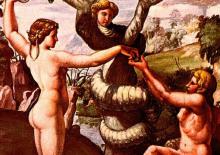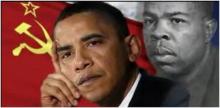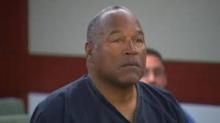- Home
- Steven Travers
THE REAPING: What the O.J. Simpson Murder Case Did to America
THE REAPING: What the O.J. Simpson Murder Case Did to America Read online
THE REAPING
What the O.J. Simpson Murder Case Did to America
By STEVEN TRAVERS
COPYRIGHT (2014)
Photo captions
Contents
Author’s note
The calm before the storm
June 1994
“You have an unusual talent”
Slaying the dragon
“It’s not a matter of life or death. It's more important than that.”
The promised land
Juice
Getting it right
Lust
Love
Marriage
What God hath joined together, let not man put asunder
Running interference
God's lonely man
Trial of the century
Ring of fire
Genocide
What we hath wrought
Fallen angels
Loose on Earth
“All the world's a stage, and all the men and women merely players”
Social justice
Author’s final word
Bibliography
Index
To Sherri Ann and Daniel, Godsends both
Author’s Note
“Simpson the ball carrier. He breaks to the right . . . evades two tacklers . . . that’s
another first down for Southern Cal.”
Southern Cal. Who is Southern Cal?
I can remember it as if it was yesterday. I was eight years old, a warm fall Saturday in
1967 in Marin County, just north of San Francisco. I was riding in the car with my dad after practicing baseball, as we always did. On the radio, a college football game; my dad’s alma mater, Cal, as in the University of California, Berkeley? Dad graduated from Cal in 1944 before officer candidate school and service as a young lieutenant in the Pacific. Virtually everybody in my family attended Cal. My uncle and his wife; his son and his wife; my cousins; my father’s brother-in-law. Golden Bears all.
The Cal Golden Bears.
My earliest sports memories include trips to Berkeley’s Memorial Stadium to watch Cal take on the Tennessee Volunteers, the Syracuse Orangemen, the Colorado Buffalos, the Texas Longhorns, the Oregon State Beavers; Jim Plunkett and the Stanford Indians.
I can remember my dad yelling and screaming, upset with the referees, disparaging Cal’s constant mistakes. At the end of the game, too young to know what I had just seen, I asked him how much Cal had lost by.
“Oh, we won,” he stated.
Cal in the 1960s won and lost at about an equal rate. They were no dynasty. The days of Pappy Waldorf, when they were among college football’s great powers, were over. But all I ever heard was Cal this, Cal that. That’s all I ever heard: Cal.
But on that sunny Saturday, the announcer kept prefacing them with a strange appellation: Southern Cal. Unable to process what this meant, I still thought I was listening to a Cal game, and asked my father if indeed that was who we were listening to.
“No, this is Southern Cal, a different college. They’re in Los Angeles.”
Dad went on to explain to me why we were listening to this team from the wilds of Los Angeles, which in Northern California was distinctly enemy territory. After Naval service, Dad became a high school teacher and successful coach of track and cross country teams, first at Lowell High School, then at Balboa High, both established San Francisco institutions. When I came along, he felt the need to make a greater living and attended the University of San Francisco Law School at night. After struggling for a couple of years to establish his practice, my father was contacted by an old colleague from his days as a teacher and coach in the City, Dr. Louis “Dutch” Conlan.
Dr. Conlan was now the president of City College of San Francisco. Would my dad be willing to teach business law at CCSF? You bet he would.
It was a perfect scenario. Dad taught his classes in the morning, had a quick lunch, then drove to his office on Van Ness Avenue, a couple blocks from City Hall, where he practiced law. In the beginning, most of his clients were his students or their friends and family. They needed a tax attorney, a probate lawyer, maybe a civil matter. From there it grew into a success.
Dad was busy with his career and his family, and did not attend the CCSF Rams’ football games, but in 1965 he started to hear how good they were. They were winning every game by huge margins and their star was a kid from Galileo High School named Simpson.
This was further connection. Dad went to Galileo with the DiMaggio brothers, back when its North Beach neighborhood was heavy with Italian immigrants, many of whom fished the bay and sold their wares on the nearby wharf, which was not yet a tourist attraction.
This Simpson kid had not been a major star at Galileo. The school was no prep grid power and his teammates were not a great supporting cast. He was mostly a linebacker or tackle, and his grades prohibited him from going to a four-year university. But now, a junior college freshman, he was undoubtedly the hottest prospect in the United States.
After setting every juco rushing record there was to set as a freshman, Simpson was being recruited by all the colleges, including the University of Southern California. In 1963, young Simpson had watched USC beat Wisconsin, 42-37 in a thrilling Rose Bowl win that gave them the national championship. What impressed the kid just as much was their beautiful white horse, Traveler, who traipsed about the Rose Bowl turf after each of the Trojans’ many touchdowns. He had his heart set on USC, but his grades were still so mediocre he could not transfer there. He needed one more year at City College to get his grades up to snuff, and that meant more dominance against JC competition, which he was clearly too good for.
Then Arizona State informed Simpson that they would waive their normal standards and let him transfer in. He could play for coach Frank Kush and the Sun Devils in the fall of 1966. It was not his first choice – likely not his 10th – but he wanted to play Division I ball.
USC assistant coach Marv Goux, as skilled a recruiter as has ever graced a living room, made an emergency flight to San Francisco, where he told the recruit that he knew he wanted to be a Trojan, and that good things are worth waiting, and fighting for. History records this to be the prime motivating factor in young Simpson’s decision to do as Goux suggested, but there were other factors.
Those “other factors” included a coterie of “wise men” at City College of San Francisco, which included Dr. Conlan and my father, Donald E. Travers. These men reiterated Goux’s admonition that good things are “worth waiting for.” O.J. took my dad’s business law course, and while he did not give any indication that he was a future CPA, he did receive a high grade from my old man, which no doubt contributed to his raising his GPA enough to get into USC.
So it was that in the fall of 1967, USC football games were being carried on a San Francisco radio station, which on this particular sunny Saturday we were listening to in the car. So it was that when I asked my father if Southern Cal was Cal, he explained they indeed were not, and while he remained a Cal man, he was now rooting for the Trojans because he knew this young Simpson fellow.
O.J. Simpson, as in “orange juice” (shortened to “Juice”), or not coincidentally, “Orange Julius,” a popular juice bar of the era that combined orange juice with ice cream in a delicious concoction.
I got my first glimpse of O.J. Simpson when he returned the opening kickoff of the 1968 Rose Bowl, a 14-3 Trojans victory over Indiana that gave coach John McKay’s team their second national championship in five years. At this, a light seemed to go on in my head. USC wins Rose Bowls and national championships. Cal, by con
trast, seemed the picture of mediocrity to me; its beautiful campus besmirched by longhaired Communists flying North Vietnamese flags, its sports teams woeful losers. Around this same time, I came to root for a sterling right-handed pitcher for the New York Mets named Tom Seaver. When I learned that he, like O.J., was a Trojan, that sealed the deal for me. I was a young baseball wunderkind who wanted to play for Rod Dedeaux as Seaver once had, and any chance that I would root for the Cal Golden Bears was lost forever. I was a Trojan for life.
Naturally, I followed O.J.’s path with great interest. Everything he did filled my Trojan heart with pride: Heisman Trophy winner, number one NFL draft pick, breaking Jim Brown’s season rushing record, passing 2,000 yards in a season, the College and Pro Football Halls of Fame; then success in Hollywood. He was my hero.
I do not know if I really conceptualized the fact that I was white and my hero was black. In California, that was quite normal. Black sports stars like Willie Mays and Reggie Jackson owned the Bay Area.
Fast-forward to the 1980s. The scene: the California Pizza & Pasta Company, a sports bar located across the street from the USC campus. After Los Angeles Raiders games, all their players and the Raiderettes would party there. After USC games, it was packed with alumni, including many ex-players. Who walks in? O.J. and Nicole Simpson with Al Cowlings and Marcus Allen. I was introduced to all of them by my friend Anthony “Bruno” Caravalho, the owner of the establishment.
O.J. was glad-handing fellow Trojans, ex-teammates, and Hollywood types. A bon vivant and man about town, flirting outrageously with the many, many gorgeous girls dotting the place, all of whom were amenable to anything this guy had in mind.
Meanwhile Nicole was dressed like a stripper in a mini-skirt and short vest, her breasts exploding halfway out of the room. Her attitude: “Notice me . . . notice me . . . notice me . . . please notice me.”
Unreal.
Fast-forward again about a year, same location. This night, a slow evening, my friend Phil Smith entered the California Pizza & Pasta Company to meet me for beers. Phil was with the L.A.P.D. and brought about six of his cop buddies with them. One of them: Mark Fuhrman.
O.J. was a hero to many; black, white or other races. He had a wide following with bases in New York, Los Angeles and San Francisco. He was universally adored; by old and young, by male and definitely by female; by sports fans and movie buffs alike. He was America’s pitchman and enjoyed a free lunch from coast to coast. He had it made.
Then came June 12, 1994.
I was as stunned and blown away by events of that day, and the subsequent, equally shocking days that followed, as anybody else. As the author of over 20 published books, including several in-depth studies of Trojans football, with O.J.’s exploits playing a large role, I felt a retrospective of the O.J. case, in time for the 20th anniversary in 2014, would help explain much about race, politics, culture and society in America today. We have seen a profound change; from O.J.’s college and pro career, to his movie roles, and in the world that has emerged since Nicole Brown Simpson’s murder: the Internet, cable TV infiltration, social media, sports scandals, the nature of hero worship, race relations, and its place in the body politic. Most if not all of these cultural touchstones grew, were given a jumpstart by, or partially owe their existence to O.J. Simpson.

 Angry White Male
Angry White Male DID COMMUNISM WIN?
DID COMMUNISM WIN? THE REAPING: What the O.J. Simpson Murder Case Did to America
THE REAPING: What the O.J. Simpson Murder Case Did to America